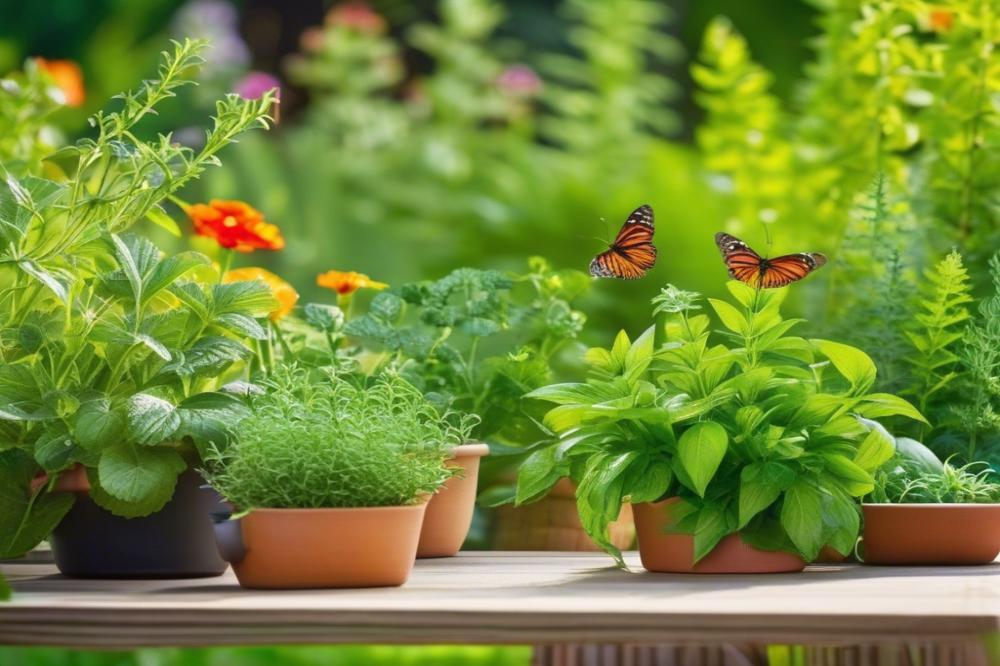Introduction to natural pest control with Herbs
natural pest control offers a powerful strategy for maintaining a healthy garden. Using pest repellent herbs is an effective option that many gardeners embrace, especially within the realm of organic gardening. These plants not only add flavor to our meals but also serve as vital allies against unwanted garden pests.
herbs for gardening go beyond mere decoration. They create an ecosystem where beneficial insects thrive while keeping destructive pests at bay. Companion planting is a practice that maximizes these benefits. By placing certain herbs alongside vegetables or flowers, you boost your garden’s natural defenses against various pests.
Some gardeners prefer alternative remedies, such as neem oil or essential oils. However, specific aromatic herbs are not just great for cooking; they can repel insects naturally. For example, herbs like basil and lavender may deter mosquitoes and flies, making your outdoor space more pleasant.
Incorporating these helpful plants can lead to a thriving garden where fewer chemicals are used. Focusing on plant remedies allows you to promote a balanced environment. This balance not only reduces the need for synthetic substances but also supports a thriving population of beneficial insects. These insects play critical roles in pollination and pest management.
The Role of Herbs in Natural Pest Control
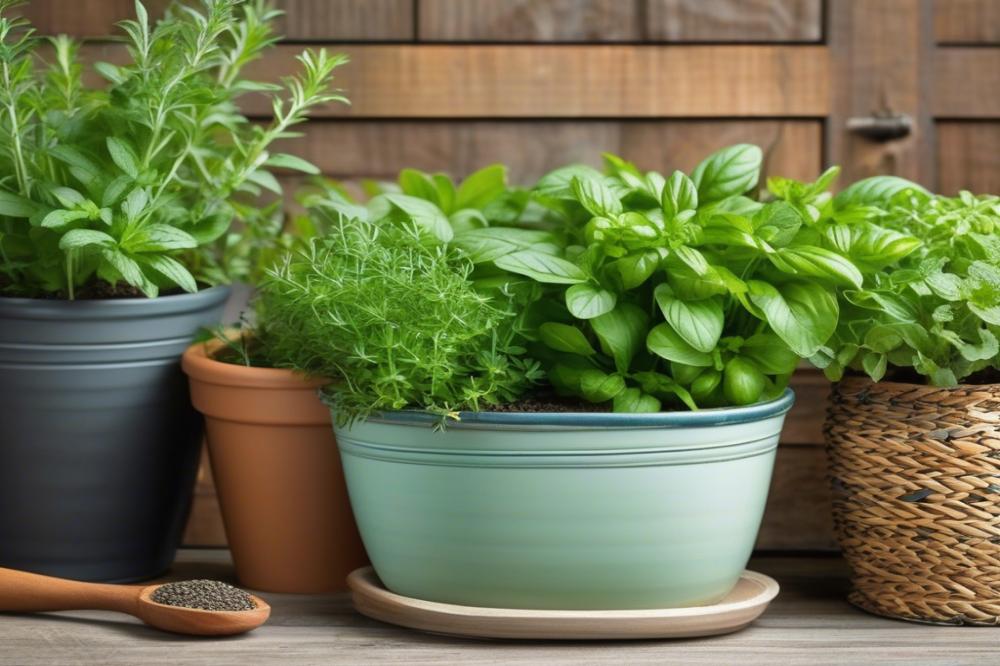

Pest repellent herbs play a crucial role in keeping unwanted insects away from your plants. These herbs emit strong scents that deter garden pests. For example, the aroma of basil can be off-putting to mosquitoes and flies. When herbs are planted in the garden, they can serve as a natural barrier against various species that cause damage.
The relationship between aromatic herbs and garden pests is fascinating. Many insects are drawn to the sweet scents of flowers and foliage. However, some herbs have evolved to produce odors that repel these intruders. For instance, mint and rosemary are known to discourage common pests like aphids and spider mites. Their potent fragrances not only protect their own territory but also make surrounding plants less appealing.
organic gardening methods often include strategies such as companion planting. This technique involves growing certain plants together for mutual benefits. When you plant pest repellent herbs alongside vulnerable crops, you can potentially reduce pest activity. For instance, placing marigolds with tomatoes can help ward off nematodes.
Additionally, plant remedies can enhance your pest control efforts. Neem oil, derived from the seeds of the neem tree, serves as a natural pesticide. Essential oils extracted from various herbs can also act as repellents. Spraying a diluted mixture of these oils on your plants can create an effective shield against pests.
Beneficial insects are another important aspect of organic pest control. Attracting ladybugs and lacewings can help maintain a balanced ecosystem. These natural predators feast on aphids and other harmful insects. By incorporating herbs that attract these allies, you create a healthier garden environment.
Top Pest Repellent Herbs
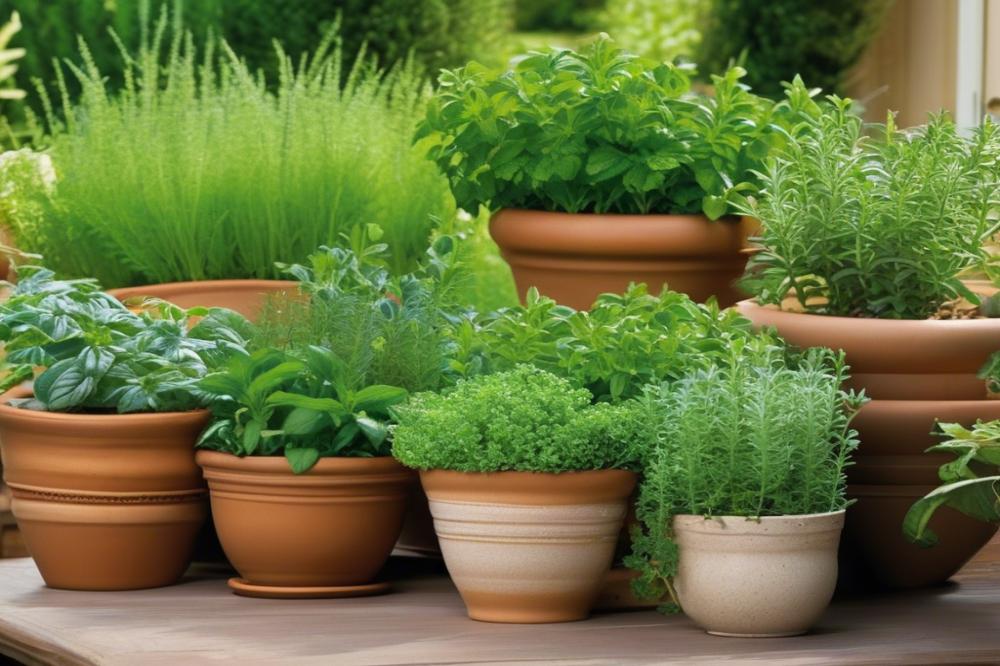

Many gardeners look for effective solutions to keep garden pests at bay. One way to achieve this is by using pest repellent herbs. These herbs not only enhance your cooking but can also play a crucial role in organic gardening. Let’s explore some of the most effective ones.
Basil
Basil is known for its delightful aroma and flavor. It repels flies and mosquitoes, making it a favorite among gardeners. When planted in close proximity to other vegetables, basil can deter these pesky insects. Its unique scent masks the fragrances that attract flies. Including basil in your garden can be both a culinary and a protective measure.
Mint
Mint is a vigorous herb that can take over garden spaces if not managed properly. It effectively deters ants and aphids, which can harm your plants. Crushing mint leaves releases essential oils that repulse these pests. Consider planting it in containers to control its spread while enjoying its amazing scent.
Rosemary
This aromatic herb is not just for your kitchen. Rosemary can ward off beetles and moths that tend to damage other plants. Its strong smell serves as a barrier against these harmful insects. Growing rosemary can assist in your organic pest control efforts while adding beauty to your garden.
Sage
Offering a dual benefit, sage attracts beneficial insects while repelling undesirable ones. Predatory insects such as ladybugs may be drawn to sage, helping control aphids naturally. This herb works well in companion planting, creating a balanced ecosystem in your garden. Its leaves are also great in cooking, making it a win-win herb.
Chives
Chives, with their onion-like flavor, are a fantastic addition to any garden. They protect against aphids and carrot flies, making them a valuable plant remedy. Growing chives nearby can lower the risk of these pests attacking your vegetables. Their vibrant purple flowers also attract pollinators, enhancing your garden’s biodiversity.
With these pest repellent herbs, natural gardening becomes simpler. These aromatic plants not only provide flavor and beauty but also contribute to a thriving environment. Try planting them today for a healthier garden.
Companion Planting with Herbs
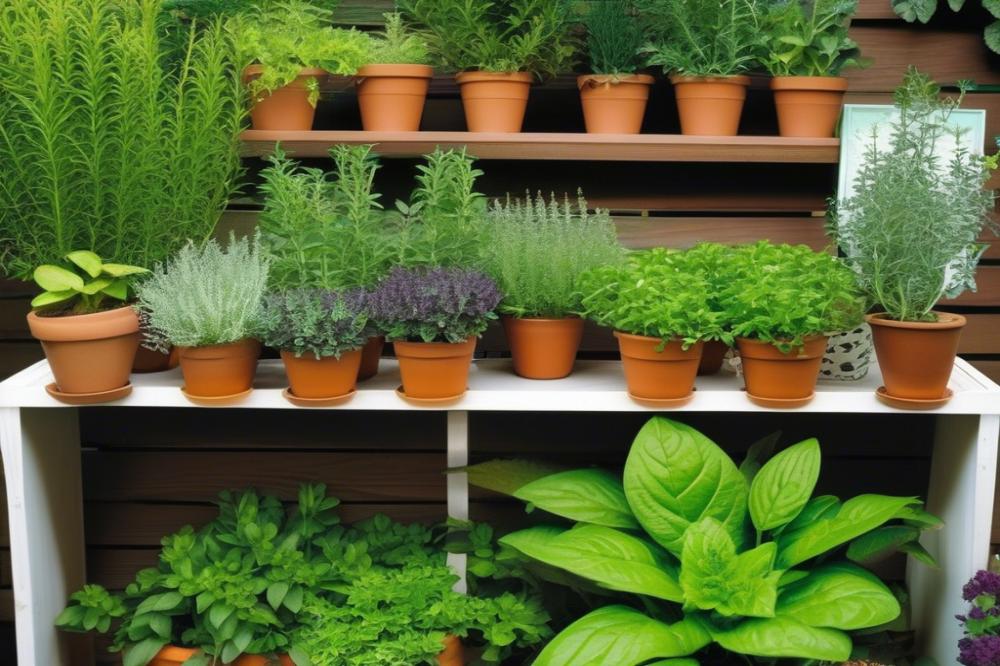

Companion planting is a simple yet effective strategy in organic gardening. It involves growing different plants together to enhance each other’s growth. This method provides several advantages, including increased pest repellent properties and improved plant health. The right combination of plants can deter harmful insects and attract beneficial ones.
Some beneficial herb pairings can significantly boost your garden’s defenses against common pests. For example, planting basil near tomatoes can help repel pests such as aphids and hornworms. Similarly, marigolds, although not a herb, can be paired with various herbs to keep nematodes and other unwanted insects away. Sage is another great companion, particularly for cabbage family plants, as it can deter cabbage moths.
Herbs play a vital role in supporting the health of neighboring plants. Their essential oils contain natural compounds that serve as effective plant remedies. These oils can confuse or repel garden pests, making it harder for them to find their preferred meals. Furthermore, these aromatic herbs attract beneficial insects like ladybugs and lacewings, which in turn help control pest populations naturally.
Incorporating these pest repellent herbs into your garden can create a thriving ecosystem. By practicing companion planting, you can reduce your reliance on chemical pesticides such as neem oil. Additionally, this approach adds diversity to your garden and can enhance soil fertility. Ultimately, a well-planned garden utilizing these principles can flourish through healthy interactions among plants.
Integrating Neem Oil and Essential Oils
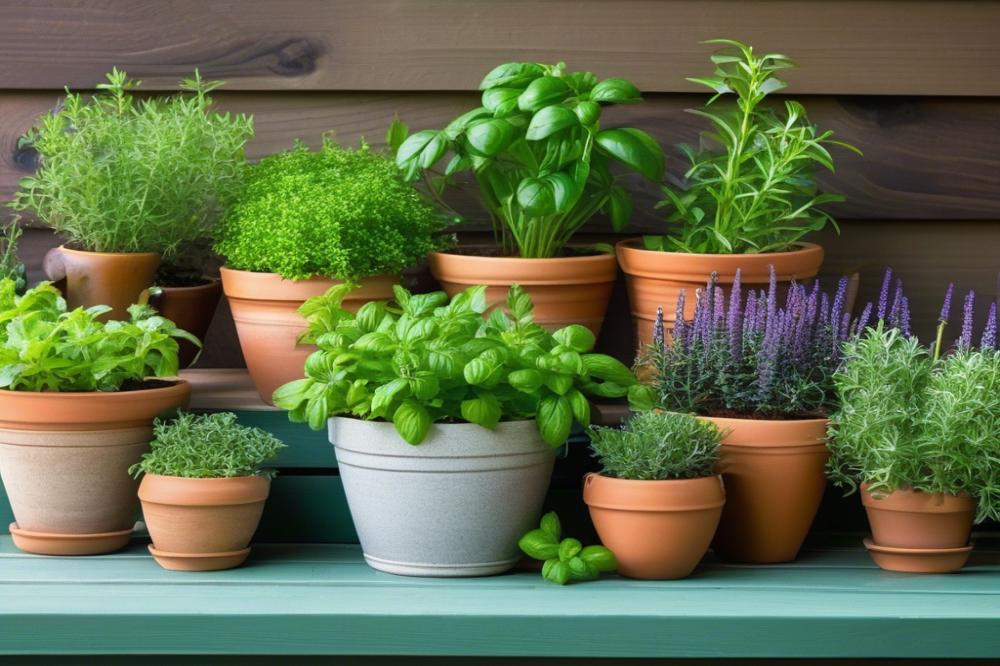

Neem oil stands out as an effective organic pest control solution. Extracted from the seeds of the neem tree, this oil disrupts the life cycle of various garden pests. Many gardeners appreciate its ability to deter insects without harming beneficial creatures. Being biodegradable, neem oil integrates well into practices like organic gardening.
Essential oils can enhance pest deterrence when combined with specific herbs. For instance, oils such as peppermint and basil can repel unwanted insects while adding aromatic qualities. Mix a few drops of these essential oils with water to create a spray. This simple solution can augment the effects of pest repellent herbs in your garden. Garlic and rosemary are also excellent choices for making homemade sprays. Spraying this mixture directly on plants can help to keep insects at bay.
Using natural oil remedies alongside pest repellent herbs offers numerous benefits. First, this strategy not only repels pests but also attracts beneficial insects to the garden. Planting aromatic herbs, such as lavender and catnip, can enhance the ecosystem in your garden. These herbs provide habitats and food for helpful insects that prey on garden pests. Additionally, combining these oils with herbs increases the overall potency of your defenses. The result is a more robust and thriving garden.
Encouraging Beneficial Insects in the Garden
Beneficial insects play a crucial role in keeping garden pests in check. These creatures help manage unwanted insects by directly preying on them or competing for food. For example, ladybugs consume aphids, while lacewings target a variety of harmful pests. By inviting these helpful insects into your outdoor spaces, you create a natural balance that reduces the need for chemicals.
Specific herbs can serve as magnets for beneficial insects. Herbs like dill, fennel, and cilantro are particularly effective. Their flowers attract pollinators and predators of garden pests. Planting these alongside your vegetables can transform your garden into a haven for vital species. Utilizing companion planting strategies can significantly enhance this effect. Consider mixing aromatic herbs, such as basil and thyme, in your planting layout. Their strong fragrances may deter some pests while inviting others.
Creating a balanced ecosystem is key to successful organic gardening. This means fostering a variety of plant life that supports different types of insects. For example, a garden that includes pest repellent herbs, like sage and mint, will not only deter bad insects but also encourage those that help control populations. Additionally, implementing plant remedies like neem oil or essential oils can offer further protection without harming beneficial insects.
Every garden is unique, and the insects that visit will vary. Recognizing which species frequent your area can guide you in choosing the right herbs. Ensuring that your space is diverse will attract an array of predators, enhancing organic pest control methods. This approach relies on nature’s own systems rather than human intervention.
Final Thoughts on Herbs for a Healthy Garden Ecosystem
Using herbs for organic gardening is an excellent choice for anyone looking to cultivate a thriving garden. These plants not only enhance flavor and fragrance but also work as effective pest repellent herbs. Relying on nature’s solutions instead of harsh chemicals leads to a more sustainable approach. A healthy garden ecosystem is vital for growth and balance.
Consider experimenting with a variety of herbs. Options like basil, mint, and lavender not only add beauty to your garden but also serve as protective elements against unwanted pests. Each herb offers its unique benefits, attracting beneficial insects while deterring harmful ones.
Fostering this kind of biodiversity helps create a resilient environment. You’ll notice that a harmonious garden thrives with fewer issues. Moreover, taking steps towards organic practices contributes to a safer planet.
Engagement with herbal solutions appeals to all gardeners, whether you’re a novice or someone more experienced. So don’t hesitate to explore these plant allies. Your garden’s vitality may flourish in ways you hadn’t imagined.

